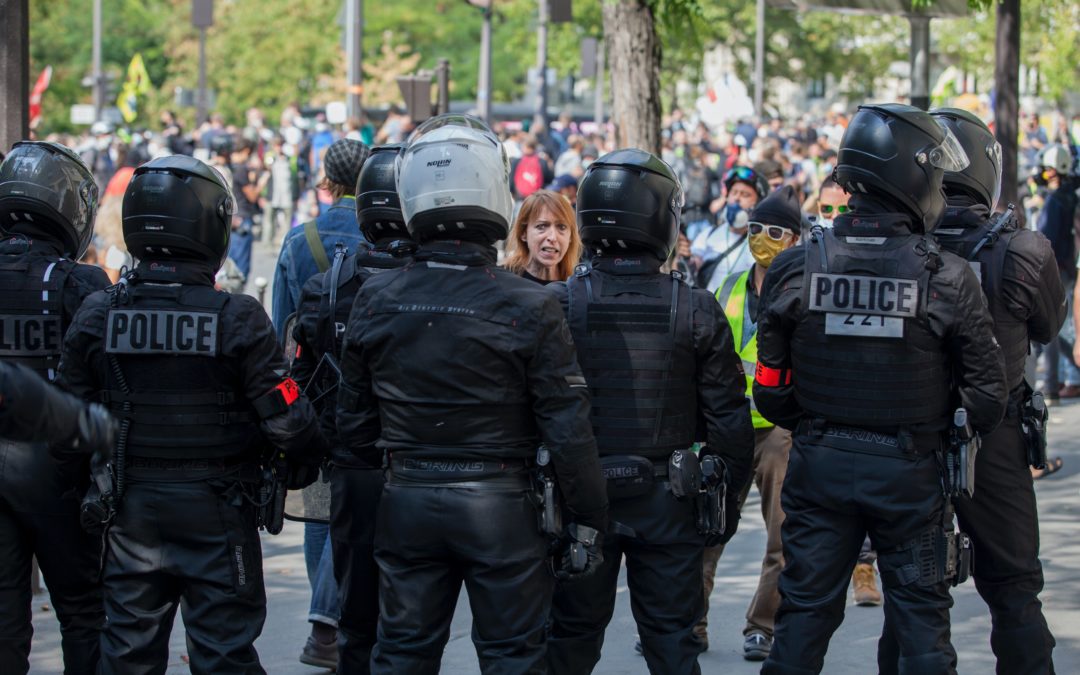This month, Maryland became the first state to repeal its statutory police bill of rights, thereby reducing the special protections police officers had previously received in the event that one of them was facing criminal prosecution. For those who are highlighting the harrowing statistic that Derek Chauvin’s guilty verdict on Tuesday made him just the 8th officer to be convicted of murder since 2005, getting rid of or reducing police protections during prosecution is likely a welcome change. But changing the procedural rights for officers is just one piece of many that would need to change to make an impact in the rate of police prosecutions.
Law Enforcement Officer Bills of Rights (“LEOBORs”) can be written into state statute, or can exist as part of a municipality’s contract with a police union. Across the country, 14 states have statutory LEOBORs, and most of the remaining jurisdictions have LEOBORs written into union contracts. Although they are not all identical, the content of LEOBORs is similar across the board. Common provisions include granting officers a formal waiting period (generally between 48 hours and 5 days) before they are allowed to be questioned about their conduct, scrubbing complaints off of police officer records after a certain amount of time, limiting the time of day and duration within which questioning may occur, and limiting investigations of police misconduct and appeals to internal bodies. Some LEOBORs include limitations on the interrogation tactics that may be used with officers, such as banning questioners from making threats or false promises — approaches which are standard in civilian interrogations.
Maryland’s statutory LEOBOR was slightly more expansive than others, and was the oldest such legislation in the country. Democratic representatives in the state’s legislature had to override the governor’s veto to accomplish this repeal, a battle which has been going on for several years.
So will finally repealing the state LEOBOR make it easier to prosecute police officers? Maybe. But maybe not.
There are a number of reasons why it is difficult to successfully prosecute police officers aside from the procedural protections afforded to them. For starters, the pre-charge and pre-indictment process granted to police officers is vastly more defendant-friendly than the process facing civilians — a reality which has been linked to the close working relationship and interdependency between the police and prosecutors. Although prosecutors have the option of conducting an investigation prior to charging any defendant, they rarely take that opportunity for civilian cases — while the reverse is true for police defendants. Grand jury trials for indictment also look vastly different depending on whether the defendant is a police officer or a civilian: prosecutors in civilian indictments often conduct grand jury proceedings at lightning speed with a strategic (read: biased) sampling of evidence, whereas painstaking effort is taken in police indictments to present the grand jury with every piece of evidence available and ample time for the jury to hear from each side.
If a case moves past these first stages and the police officer is successfully charged and indicted, the prosecution will still face a steep uphill battle actually winning that case. The legal precedent for use of force is incredibly police-friendly, and in all but the most outrageous cases, qualified immunity will protect an officer from being sentenced.
More fundamentally, even if plaintiffs were successful one hundred percent of the time in obtaining a guilty verdict for police officers who kill someone, does this accomplish the goal of a more just, less harmful society?
The rise in calls for police abolition or defunding of police indicates that, for many, a just and less harmful society is one in which the footprint of the criminal legal system is vastly reduced or eliminated. Some have argued that prosecuting police is inherently contrary to that objective: by using the criminal system to address harms by police officers, we legitimize that system as an approach which does, in the end, deliver justice and remedy harm.
The debate over whether reform or abolition is the most just route – and whether reform can be used to lead to abolition – is playing out more broadly. For example, the dialogue surrounding the 8 Can’t Wait Campaign was quickly met with a counter hashtag, 8 to Abolition — the latter camp argued that the list of eight reforms would not be sufficient to remedy the violence of policing or the carceral state, and would in fact feed into it. It remains to be seen whether there will be a similar response in Maryland to the state’s latest police reform effort, and whether voters will push their lawmakers to go further.

